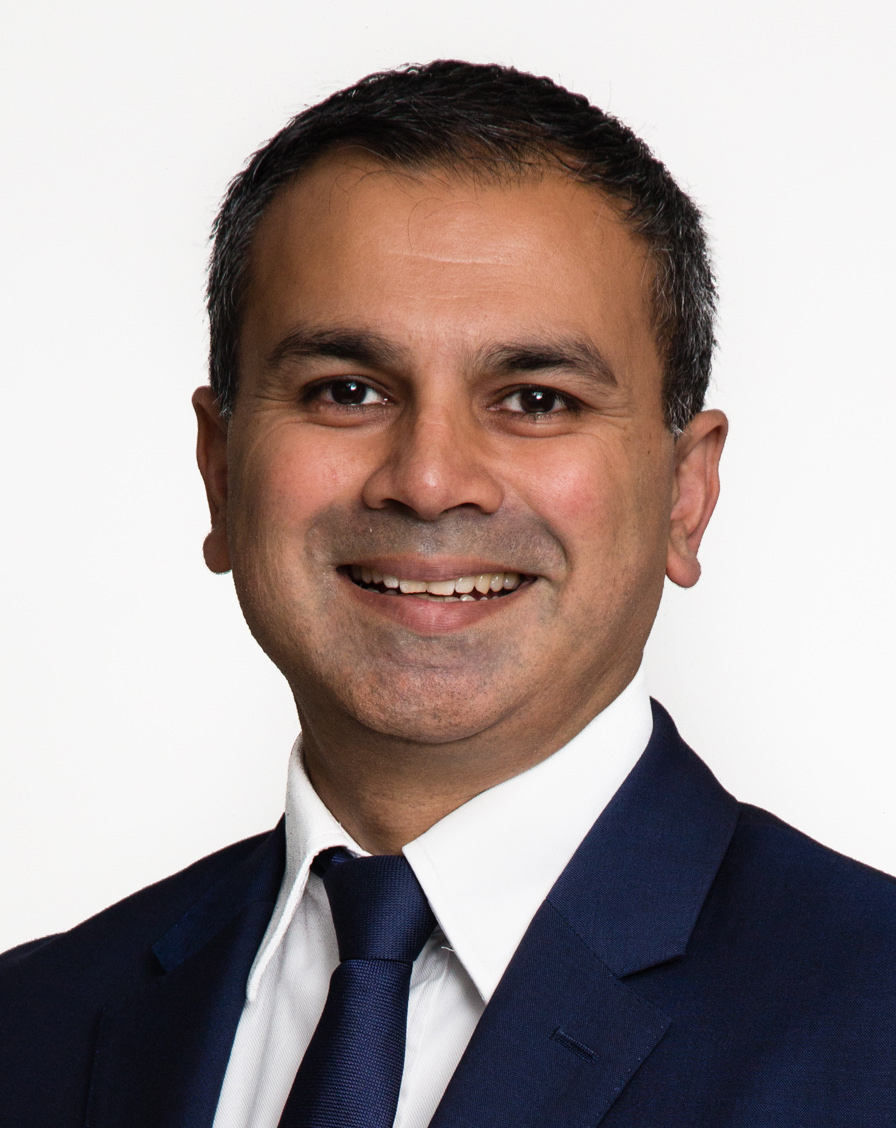
Fixed-income investors looking for an edge should consider Australian corporate bonds issued in foreign denominations, argues Perpetual’s head of income Vivek Prabhu.
- Offshore bonds can deliver diversification and alpha
- Take care with currency hedging
- Find out about Perpetual’s Diversified Income Fund
There are more than $1 trillion in outstanding Australian corporate bonds – much of which is issued in foreign denominations.
Aussie companies issue foreign-denominated bonds to gain access to a bigger pool of potential lenders, lower funding costs, more diverse funding sources and a natural currency hedge for offshore operations.
But these offshore bonds can also present opportunities to Australian investors – if you can get access through an experienced investment manager.
They can offer opportunities not available in AUD, better value than equivalent AUD bonds and superior bond-holder protections, says Vivek.
“From time to time, they might be cheap or expensive relative to the equivalent Aussie dollar bonds issued by those same banks or corporates,” says Prabhu.
“When those mispricings occur, it gives me an opportunity as an active manager to try and monetise those mispricings or get a better return for a given level of risk.
“By trading offshore bonds we’re aiming to monetise movements and relative valuations in credit spreads.”
For example, Vivek has recently owned tier-two subordinated debt issued in US dollars by Macquarie Bank, Westpac and NAB.
You can read more about Vivek’s bank-issued debt investing here.
“If I am comfortable with subordinated debt issued by Aussie major banks as a credit risk, I'm going to invest where I'm getting the biggest bang for my buck, and the best credit yield premium for that given level of risk.
“In recent months for bank subordinated risk that was in the US and euro markets.
“Now it's in line with the Aussie curve and I'm taking profit and switching back into the Aussie bonds.”
Why invest in offshore bonds?
There are several reasons an Australian investor might consider bonds issued in foreign denominations.
“One reason can be to access certain parts of the credit market which you can't necessarily get if those bonds aren't available in Aussie dollars,” says Prabhu.
“For example, if you're an Aussie investor and you like bank hybrids (a security that combines elements of debt and equities), there are not many offshore banks that issue hybrids in Aussie dollars.
“If you want to get diversification outside the Aussie economy or the Aussie banking system and you want to hold global bank hybrids, it's very hard to do that in Aussie dollars.“
There may also be advantages in varying terms and conditions between Australian and overseas-issued bonds.
“For example, in 2015 there was market speculation that Woolies was going to be taken over by private equity,” says Prabhu.
“There was a risk that Woolies would not be investment-grade credit anymore should those private equity rumours materialise.
“I looked at the global bond curve for Woolies and there were none that were particularly cheap or expensive. But I found a US dollar bond that Woolies had issued which had strong bond-holder protections in the event of a change of control such as a takeover.
“I wanted the Woolies exposure and that was a sensible way to mitigate that takeover risk and any associated deterioration of its credit quality.”
Investors can exploit price discrepancies
Offshore bonds offer opportunity for increased returns by exploiting pricing discrepancies between Aussie-dollar and foreign-denominated bonds.
“You can get paid differently depending on which bond you look at in which currency,” says Prabhu.
“It pays to monitor this stuff and we do – that's one of the benefits of active management and something that's very hard for your mum and dad investor to do themselves.
“To find these pricings and relativities you need to have access to Bloomberg data and access to hedging instruments such as cross-currency swaps and the like.”
Pricing discrepancies can be caused by a variety of reasons, but market volatility is a common driver.
“Typically, it happens during periods of market volatility like the GFC and Covid where the baby gets thrown out with the bathwater so to speak.
“For example, during the pandemic and GFC, investors would often sell US dollar bonds issued by non-US domiciled issuers ahead of bonds issued by local (US) domiciled issuers – for which they had a better understanding.
"It's a dynamic known as home-town bias.
"This often resulted in indiscriminate selling of US dollar bonds issued by foreign issuers such as Aussie banks and corporates.
“They don't really look at the pricing relativities, they just want to get rid of the risk.
“Those periods of market stress and volatility can really open up some of these pricing discrepancies.
“Many different things can drive these pricing discrepancies, but typically it is during periods of volatility like the GFC or onset of the pandemic.”
How to invest in offshore bonds
How does Perpetual’s credit and fixed income team take advantage of these pricing discrepancies?
Prabhu points to two recent examples where he invested in offshore Australian bank credit.
“There was a very big spike in my foreign-denominated bond holdings in the immediate aftermath of Covid in April-March 2020.
“Prior to Covid I only had about 14% in foreign-denominated bonds. That spiked up to almost 35% for about five or six months, and then it went back down to 14% after I took profits.
“When Covid hit in March 2020, credit spreads jumped as investors demanded extra compensation for riskier investments such as corporate bonds.”
For a short time, the return was particularly attractive for foreign-denominated bonds.
“The credit yield premium that investors could receive in the foreign-denominated Aussie major bank credit risk was nearly double what you'd get for the exact same credit risk in Aussie dollars.
“I was buying these offshore bonds which had the same credit risk as the AUD bonds and getting nearly double the credit premium. “
After taking profits, Vivek again increased his foreign-denominated credit allocation in mid-2023 when he saw a similar discrepancy in “tier-two” bank credit. (Vivek explains this strategy in an article here).
“I was buying the tier-two bonds in US dollars and euro, because they were much cheaper for the exact same credit risk than the Aussie bonds.
“I started taking profit on those positions last month, in February. I then switched back into the Aussie dollar bonds of the major banks subordinated debt. “
What about currency fluctuations?
Investors considering offshore bonds should take care to manage foreign exchange risks.
There are two different ways that fund managers hedge these exposures, Prabhu says.
“One way is using a ‘cross-currency forward’, where you roll the forward every three months – and you do that at the portfolio level.”
A cross-currency forward is a flexible hedging contract which enables fund managers to lock in an exchange rate across multiple currencies.
“That's a very high-level hedge – it's not a perfect hedge, but it's good nonetheless.
“However, we hedge every individual bond with a coupon-matched, cross-currency swap, which means all the cash flows are tailor-made on the swap to match the exact cash flows on the bond.”
A cross-currency swap is a contract where two parties agree to pay interest and principal in one currency at an agreed exchange rate, while the other party reciprocates with interest and principal in a different currency.
“It’s a much better hedge. The way we do it, it's perfectly matched and you only unwind the hedge when you're selling the bond.
“It results in a much smoother profile of distributions for the fund.
“The way we hedge is done is to perfectly match each bond we buy.”
Invest with an experienced active fund manager
What are the advantages of investing in foreign-denominated bonds through an active fund manager?
“Number one, it's very hard for your average mum and dad to get access to the pricing of these bonds, to see where they're trading and identify these mismatches,” says Prabhu.
“We have the resources to be able to identify these pricing mismatches.
“Secondly, mum-and-dad investors don't have access to the hedging tools such as cross-currency swaps.
“You need to be a big fund manager or have a big balance sheet for banks to offer you those cross-currency swaps.”
About Perpetual’s Credit and Fixed Income team
Perpetual offers a range of cash, credit and fixed-income solutions and are specialists in investing in quality debt.
We take a highly active approach to buying and selling credit and fixed income securities and invest extensively across industries, maturities and the capital structure.
Find out more about Perpetual’s Credit and Fixed Income capabilities
Want to find out more? Contact a Perpetual account manager

